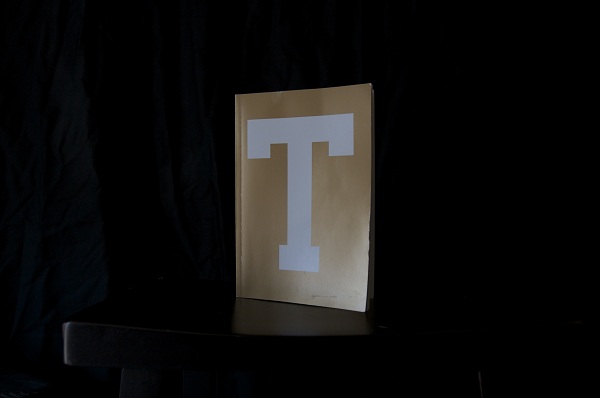 With crumbled covers, browned pages and aged words of wisdom from Tech students past, the first few decades of the T-Book’s existence reveal much about students’ lives in the formative years of the Institute.
With crumbled covers, browned pages and aged words of wisdom from Tech students past, the first few decades of the T-Book’s existence reveal much about students’ lives in the formative years of the Institute.
Originally published by the Young Men’s Christian Association (YMCA) in the early 1900s, the T-Book provided information for incoming freshmen about Tech traditions and advice concerning everything from academics to religion.
“We hope that you will not become discouraged and disheartened, but that this session will help you to a higher and stronger intellectual, physical, moral and Christian manhood,” the 1909-’10 edition of the T-Book said.
Christian beliefs ran deep in early Tech life, as several pages of each T-Book were dedicated to the processes of the YMCA, the importance of joining such an organization and the urgency of regularly attending church.
The 1932-’33 edition of the T-Book detailed a rigorous inspection schedule that all dormitory residents had to undergo.
“The first inspection is made at 7:10 a.m. (except Sunday). At this time, rooms must be in order, beds made and students fully dressed. At 7:05 p.m., the second inspection is made. At this time all students must be on their floor for study. No visiting is allowed except by permission of the inspector. Quiet shall be maintained. The third inspection is made at 11 p.m. At this time all students must be in their rooms except in extreme cases. Written permission must be secured from the dormitory office to miss this inspection,” the 1932-’33 edition said.
Following up with this strict weekday schedule, the administrators were more relaxed on Friday and Saturday nights, allowing students to be out until 12:30 a.m.
The authors of the T-Book suggested to remember “to be a man,” “that all spare moments may be profitably spent in the Library” and “the friends you make in college will be your friends through life – choose them with care,” in the 1910-’11 version.
The T-Book also advised students not to “loaf,” “forget Monday morning chapel,” “fail to write home regularly,” “forget to join the YMCA and enter a Bible class” or “form a habit of ‘cutting’ classes.” The authors also advised not to “become discouraged. It will all come out right in the end.”
The early editions of the T-Book show the beginnings of many extracurriculars that are still active on campus today, including the band, the Glee Club, the ANAK Society, Radio Club, Yellow Jacket Club (now known as the Ramblin’ Reck Club) and even a form of Freshman Council. Many organizations were dedicated to specific majors, such as the Architectural Society and the Society of Civil Engineers. Other clubs included literary societies, church groups, Greek life and social organizations.
The T-Book also provided advice about topics other than academic excellence and religious maintenance.
“Now if you expect to date the SYTs (Sweet Young Things), get some of your friends, the upper classmen to introduce you around, or maybe you know some girl from the old home town who is at school in one of our girls’ schools,” as written in the 1932-’33 edition of the T-Book.
The T-Book suggested Agnes Scott College, Brenau University, Oglethorpe University, Emory University and the North Avenue Presbyterian School as locations for students of the then-all-male university to find girls.
Along with the currently well-known “Up With the White and Gold” and “Ramblin’ Wreck from Georgia Tech” fight songs, some lesser known chants were included in the T-Books, including “Triangle Yell,” “Drum Yell,” “Tech Rah Yell,” “Ever Firm and Staid” and “At Georgia Tech.”
Much like the overall character of the books, these songs spoke to determination and brotherhood.
The early traditions also included a cap to help upper classmen distinguish between themselves and freshmen, similar to today’s Recently Acquired Tech Student (RATS) cap.
The Institute’s global influences began to appear after World War II, as members of Tech’s administration began to work in China and several other countries.
The focus of the modern version of the T-Book is entirely different from the early years. The YMCA version of the T-Book ended publication in 1970 due to lack of funding and an end of the partnership between Tech and YMCA, according to the Ramblin’ Reck Club’s website. The T-Book reappeared online in 1997, and then again as an actual book that detailed Tech traditions and guidelines for filling out RATS caps.